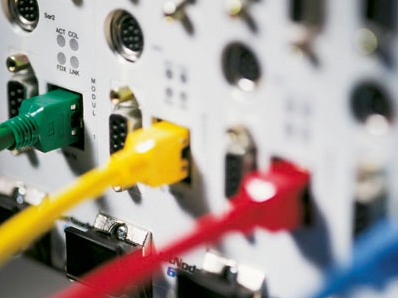Why today's Digital Economy Bill debate is a matter of life and death
This bill is murder

Here we go again. Gordon Brown's been to see the Queen, and a month today we'll grudgingly traipse into the polling stations to decide which bunch of yahoos will ruin the country for the next four years.
The bread and circuses of a general election campaign could be dangerous, however: as we know, the government wants to ram the Digital Economy Bill through Parliament while everyone's attention is elsewhere. It gets its second reading today, and that's probably the last chance for MPs to stop the bill going through without proper scrutiny and debate of its more dangerous ideas.
Dangerous? We think so. If you haven't seen it already, look at collateralmurder.com. The site shows footage of US soldiers shooting unarmed civilians – killing adults and wounding children – with armour-piercing rounds from a helicopter.
The video comes courtesy of WIkileaks, a website the US Pentagon would really like to get rid of. Under the proposed Digital Economy Bill, the Pentagon might get its wish.
The bill doesn't include anything about banning sites politicians and the military don't want you to see, but it doesn't need to. By including a clause that could enable the blocking of sites accused of copyright infringement, the bill could block WIkileaks, and collateralmurder.com, and any site that attempted to mirror the clip. The footage, like many things Wikileaks is given by whistleblowers, is copyrighted material.
Alarmist? We don't think so. Last year, Wikileaks ended up blocked for daring to talk about, er, online censorship. When Wikileaks posted details of the sites blocked by the Danish government's internet filters, the Australian government promptly added the relevant Wikileaks pages to its list of banned websites. It wasn't illegal to read it, but linking to it could lead to fines of up to AUS$11,000 per day.
Could the Digital Economy Bill really block Wikileaks? Probably not, because any attempt to take down Wikileaks or collateralmurder.com would quickly cause a Streisand Effect: the more you try to silence something the more people shout about it.
Get daily insight, inspiration and deals in your inbox
Sign up for breaking news, reviews, opinion, top tech deals, and more.
But that's partly because Wikileaks has a very high profile, so if you blocked it lots of people would notice. Under the proposed Bill, Wikileaks' successors could easily be strangled before many people even know they exist.
And of course, just because you can't really block Wikileaks' content doesn't meant politicians wouldn't be dumb enough to try it.
We're not against the Digital Economy Bill. It's an enormous piece of legislation, with important plans for digital radio, TV and other media. But the Devil is in the detail. Some of the clauses are dangerous, and the one about site blocking has the potential to be the most dangerous of all.
The government doesn't intend to use the bill to block sites it doesn't approve of, but then it didn't intend its anti-terrorism legislation to be used against Icelandic banks or dog owners either. That was bad law; the Digital Economy Bill could turn out to be even worse.
------------------------------------------------------------------------------------------------------
Writer, broadcaster, musician and kitchen gadget obsessive Carrie Marshall has been writing about tech since 1998, contributing sage advice and odd opinions to all kinds of magazines and websites as well as writing more than a dozen books. Her memoir, Carrie Kills A Man, is on sale now and her next book, about pop music, is out in 2025. She is the singer in Glaswegian rock band Unquiet Mind.
